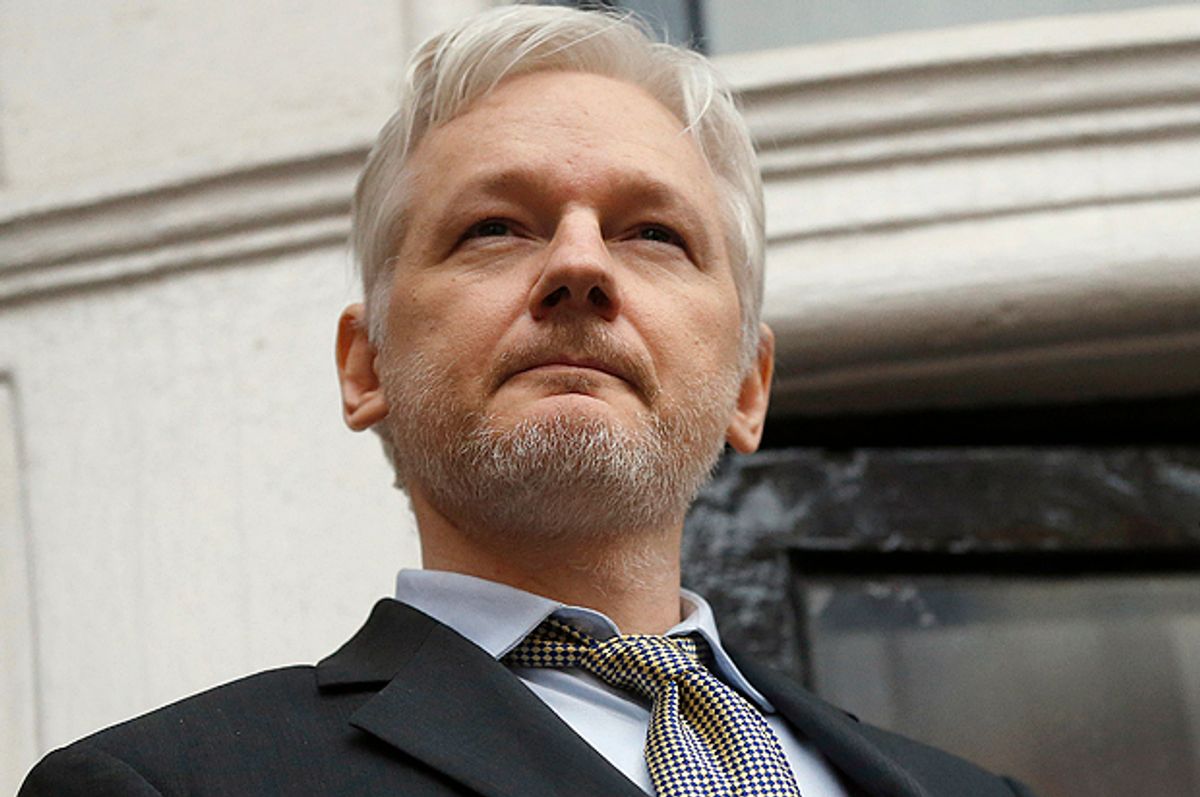As cybersecurity experts weighed in and the TV networks asked about Russia connections, Wikileaks editor Julian Assange said his organization’s revelations about CIA hacking operations reveal a growing danger, not just to individual rights, but also to the business models of leading technology firms.
In a livecast press conference, Assange said his organization had shared information from the CIA’s hacking files with leading technology companies, so that they could patch security breaches exploited by the CIA's cyberwar operatives.
“We are working with manufacturers to give them privileged access” to the CIA files, Assange said, in his opening remarks. (The files are available in the Wikileaks site in a vertical called Vault 7.)
WikiLeaks wants to join forces with tech giants against the CIA, and at least two major firms have responded with interest. Apple issued a statement saying that “many” of the latest iOS bugs identified in the Vault 7 documents were already fixed, suggesting that others may have been unknown to the tech giant.
"While our initial analysis indicates that many of the issues leaked today were already patched in the latest iOS,” the Apple statement said, “we will continue work to rapidly address any identified vulnerabilities.”
Samsung, stung by the revelation that the CIA had figured out how to turn Samsung TVs into bedroom spy stations, also responded positively.
"Protecting consumers' privacy and the security of our devices is a top priority at Samsung. We are aware of the report in question and are urgently looking into the matter," the Korean company said.
Corporate high road
Speaking from the Ecuadorian embassy in London, where he has been living for the past four years, Assange also took questions from Twitter.
Amid continuing controversy over Wikileaks' role in the 2016 election, Assange took the high road, emphasizing the commonality between his organization's interests and those of the global high-tech business community.
Assange said Wikileaks had “no opinion” on President Trump’s unsubstantiated claim that the Obama administration had wiretapped his New York residence. He said the 8,700-plus CIA hacking files on the Wikileaks site contained no information on such allegations.
When asked by ABC News if he had ever been paid by the Russian government, Assange said no. He invited journalists to join the Wikileaks staff examination of the Vault 7 documents. He said the group has harvested 22,000 IP addresses associated with CIA cyberwarfare and will seek to identify them all.
Cyber-security experts interviewed by the Washington Post and New York Times said the files probably came from an agency employee or contractor, not a foreign source.
Digital Geneva convention
Assange struck a business-like tone from the start. He endorsed the proposal of Brad Smith, president and chief legal officer of Microsoft, for a "digital Geneva convention.”
He quoted extensively from Smith’s address to a cybersecurity conference in San Francisco last month, where Smith had said, "The tech sector plays a unique role as the internet’s first responders, and we therefore should commit ourselves to collective action that will make the internet a safer place, affirming a role as a neutral digital Switzerland that assists customers everywhere and retains the world’s trust."
Assange, the radical fugitive hacker, echoed Smith, a khaki-clad corporate lawyer, in calling for a digital Geneva convention “that will commit governments to protecting civilians from nation-state attacks in times of peace.”
Assange quoted the Microsoft president as saying “protection against nation-state cyberattacks requires the active assistance of technology companies. “
For the controversial Assange, a pro-corporate posture is not only good public relations, it is also good politics and public policy.
Assange is surely right that CIA hacking poses a commercial threat to the business models of leading multinational corporations. Assange cited one estimate that industry losses could amount to $40 billion.
Engagement with the corporate sector helps Wikileaks' cause. Apple and Samsung didn’t comment on the release of the Vault 7 documents because they like the combative Assange or care about CIA espionage tactics. They responded publicly because they see government-sanctioned hacking as a threat to consumer confidence in their products and thus to their revenues.
Assange doesn’t profess much interest in maximizing Silicon Valley profits, but the creation of a digital Geneva convention would serve the goals of his libertarian organization, which seeks to thwart or restrain secret military and intelligence organizations.
The digital embrace between Wikileaks and Microsoft is a reminder of a 21st-century truism: cyberpolitics makes for strange bedfellows.




Shares